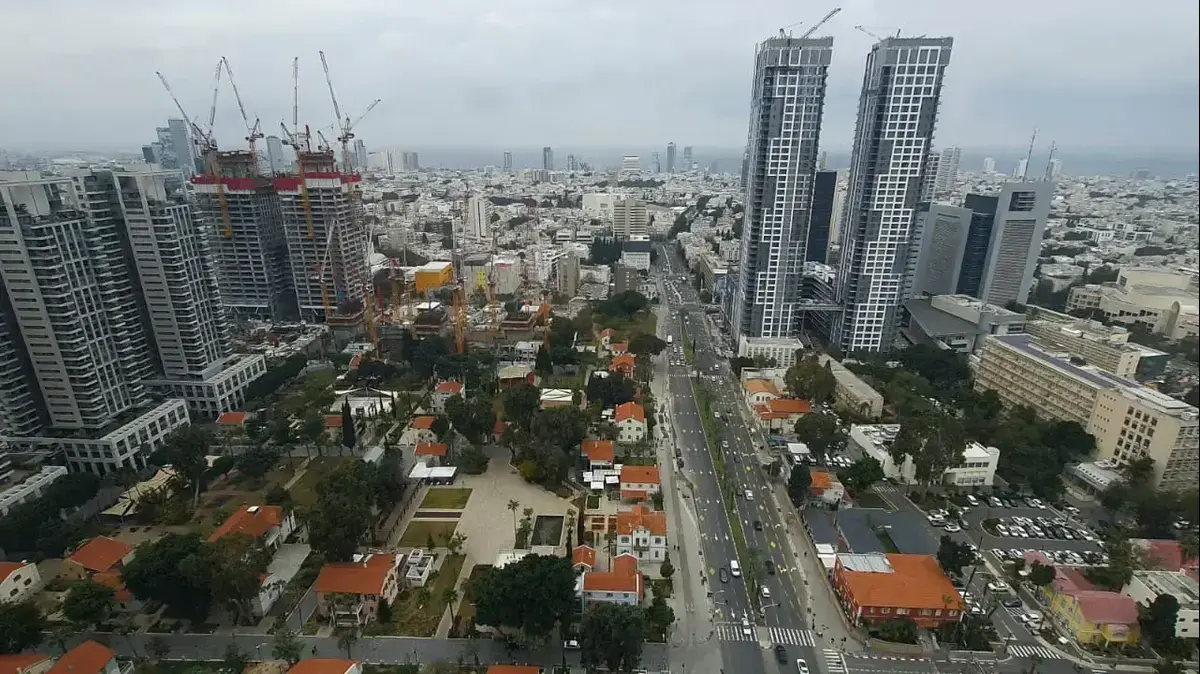Israeli high-tech is looking for a home: Who will be the next "Rothschild" and "Sharona"?
The high-tech industry has exhausted its offices in the heart of Tel Aviv and needs more and much more space.
Amir Ilan, Guest Column
13/02/2022
Sunday, 13 February 2022, 12:07 Updated: 12:10
Share on Facebook
Share on WhatsApp
Share on Twitter
Share on Email
Share on general
Comments
Comments
If there is one prominent industry in the Israeli economy to which office owners owe gratitude for the recovery from the Corona period, it is the Israeli high-tech industry.
The industry broke every possible record in growth in 2021 when Israeli high-tech companies raised $ 25.6 billion in 773 deals, 146% more than the amount raised last year.
The immediate meaning of raising capital is to expand activities and recruit workers, and these need more space and much more.
Not only for a computer stand but also for the work environment that the Israeli high-tech industry needs.
This expansion has led to high-tech companies occupying half of the office space in Tel Aviv today.
The high-techists love it and most of the talents and small and large companies, have so far felt that Rothschild and Sharona are the heart of the Israeli high-tech industry.
With almost unlimited budgets, they can stay in this environment even if it is a rent that has skyrocketed in the last quarter to NIS 200 per square meter in the most sought-after places in the city.
On the other hand, today there are almost no areas left for rent in Tel Aviv and if in the next two years the industry's leading industry continues to grow as has happened in the last two years, high-tech companies will have no choice but to leave the city, no matter how deep their pockets.
More on Walla!
"Tasting" from Morocco: Where to Find Perfect Local Food Across Morocco?
Walla!
Tourism in collaboration with Pegasus
Sharona Towers (Photo: Reuven Castro)
The growth dilemma
Very quickly, emerging companies will find themselves in a situation that requires them to leave the city or leave their employees at home - and this is how quite a few executives in high-tech companies in India are already hurting in the long run the productivity and output of employees
The situation in Tel Aviv is not going to improve in the next three years, since the construction of one significant office tower is expected to be completed by 2025, when most of the space in this tower has already been marketed and rented.
As a result, companies will very quickly find themselves facing a situation that requires them to leave the city or leave their employees at home - and this, as quite a few executives in high-tech companies in India, harms long-term productivity and productivity of employees.
If so, the high-tech industry is already looking up to the cities near Tel Aviv and starting to look for the closest alternatives, perhaps to give the talents the closest option to "Breakfast" in Rothschild.
Cities such as Ramat Gan, the stock exchange area, and the employment area of Bnei Brak - the BBC and Givatayim, are in my opinion likely to be the first to benefit from the leakage of high-tech companies in their direction, mainly due to the significant advantage of their employment complexes over places like Herzliya, Petah Tikva or Rishon Lezion .
Prominent examples of what we have seen happen in recent months are Similar Web, which signed a huge deal to rent a cell phone in Givatayim (over 17,000 square meters at NIS 1.4 million per month according to publications) and leaves the Sharona Tower in Tel Aviv or prominent high-tech companies such as VIBER that moved to Bnei Brak. Firstly, which areas are "perceived" closer to Tel Aviv than the competing employment areas and secondly, they have maximum accessibility - on the route of the red line of the light rail that will start operating in about a year, near Ayalon lanes and near Israel Railways. The latter we are witnessing high price increases of about 50 percent, especially in the newer towers. 80 NIS per square meter shell.
Waiting for the light rail.
NATA (Photo: Official Website, NATA)
Building on the red line
The second complex is, as mentioned, the BBC, which currently offers a quarter of a million square meters of new and modern offices that are in advanced stages of construction. The
BBC's most notable advantage is the combination of low rents in relation to the city of Tel Aviv, along with the quick access to the center of Tel Aviv and to Israel Railways via the red line of the light rail, which is scheduled to start working at the end of 2022. This trend is also expected to affect transaction prices outside Tel Aviv, which may rise in the coming year by 10-15 percent, especially near the light rail route.
Amir Ilan is the CEO and owner of DNA Management and Marketing, which specializes in marketing and rental. Office and high-tech projects for leading real estate companies.
Real Estate
In the country
Tags
Bnei Brak
Givatayim
Tel Aviv Jaffa









